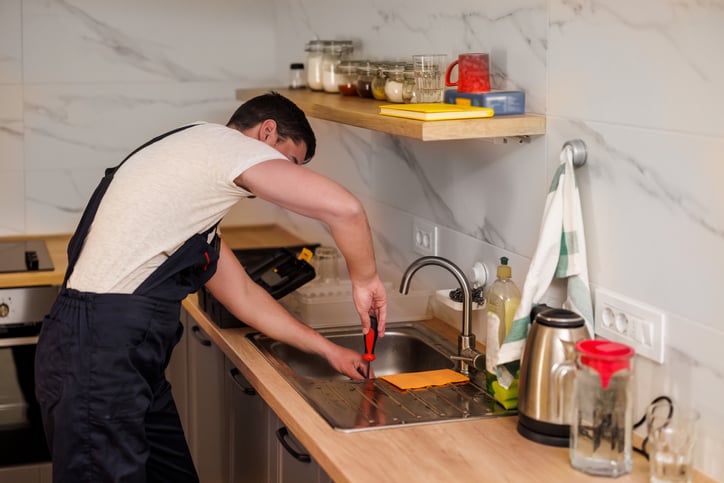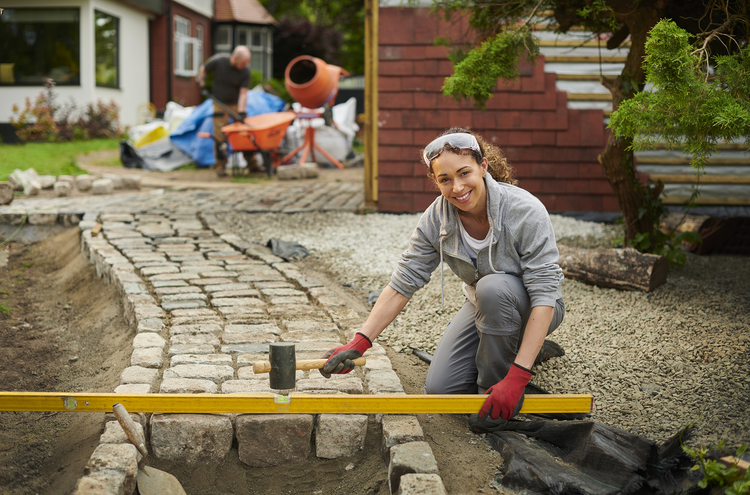Are you good with your hands? Do you like puzzles and problem-solving? Want to work in an industry where there’s always a demand for your services?
Then a career as a professional plumber could be the ideal career path for you. It’s a job that comes with good job security, solid starting pay, and significant potential upside, especially if you plan on learning how to start a plumbing business.
Want to know how to become a plumber?
Follow these steps.
First, a look at the job profile
Plumbers are construction experts that specialize in installing, repairing, and maintaining residential and commercial fixtures. This includes water systems, gas systems, heating systems, and sanitation units. What specific plumbing services are rendered depends on the plumber. For instance, The Plumbing Factory in Santa Barbara, CA specializes in the following:
- 24-hour emergency plumbing
- Water heater repair and install
- Air conditioning replacements
- Sewer line repair (including trenchless)
- Drain cleaning and hydro jetting
- Water pressure regulators
- Gas line repair and install
- Repiping services
- Kitchen plumbing
- Water filtration systems
- High-def sewer camera inspection
- Whole-home automatic shut-off valves
- Whole-home plumbing check-up
According to the Bureau of Labor Statistics, in 2020, there were 469,9000 registered plumbers in the U.S., with an expected job increase rate of 5% over the next decade. The median pay for contracted plumbers, pipefitters, and steamfitters was $56,330 per year at an average hourly rate of $27.08. But you could make even more as a licensed master plumber or a business owner.
So, how long does it take to get a plumbing license? It depends.
Plumbing is a job that you learn through hands-on training. Acquiring the skills necessary to become a journeyman plumber takes time and effort. And each state has its own hourly requirements. For instance, in California, you’ll need at least four years to learn and master the trade. And to become a responsible master plumber, you’ll need to work as a journeyman plumber, foreman, or supervisor for several years after that.
How to get a plumbing license
If the above journey piques your interest, these are the steps you’ll need to follow to acquire a plumbing license:
Step 1: Consider which type of plumber you’d like to be
Before you set out on this journey, you need to have an idea of what type of plumber you want to be. Fundamental questions you should consider include:
- Do you want to be a commercial plumber or a residential?
- Would you prefer to be a service plumber or work with new construction?
- Do you want to join a union or operate independently?
What much of this boils down to is this—do you prefer to build things or fix them?
Even if you’re unsure, doing your research is helpful to get an idea of what both lines of work entail.
Remember, what you decide now isn’t set in stone. Chances are, you’ll likely start down one trajectory only to end up on another. However, having a gut feel for the job could streamline the process and ensure that you find your niche.
Step 2: Complete your educational requirements
A college or advanced degree isn’t required. That said, you will need to graduate with a high school diploma or an equivalent degree. Ideally, that education should provide a baseline in terms of mathematics, physics, and computer science.
While some technical schools provide advanced plumbing education on topics like welding, pipe or plumbing system design, and so on, most plumbers will get into the profession through an apprenticeship program.
Step 3: Become an apprentice
The traditional path toward becoming a licensed plumber typically begins with an apprenticeship. This learn-while-you-earn program takes two to four years to complete and is commonly offered by the local union chapter, trade school, or plumbing businesses. If approved, you start with a salary that's 45% of the regulated minimum for a licensed plumber; and each year, that wage increases by 10%.
To join, you must:
- Be 18 years or older
- Have a GED or high school diploma
- Pass a drug test
- Pass an entrance exam
And what does an apprenticeship entail? According to the online networking platform, Tallo:
Plumbing apprenticeships generally receive hands-on training at job sites, where they learn how to do many of the most common daily jobs, as well as some technical instruction… You’ll learn the essential tools of the trade and may also pick up on some other components of the job, like the business and marketing sides of things.
In addition to hands-on learning, a plumber apprentice is required to take courses on a variety of subjects, including state codes, blueprints, drafting, OSHA, mathematics, and more. All of this field and coursework will help prepare you for the plumbing license exam.
Step 4: Pass the plumbing license exam
In order to legally operate as a plumber in some states on jobs valued at more than $500, you must be a licensed contractor, or directly supervised by one. This applies to both apprentices and journeymen.
But even if you finish your plumbing apprenticeship program in two years, you won’t yet be qualified to take the exam. Rather, you must have at least 4 years of experience as a journeyman, foreman, supervisor, or owner-builder. A test fee will be also required in addition to the necessary work experience.
What’s on the exam?
Technically there are two exams. One covers plumbing trade knowledge. The other focuses on state law and building codes. For the plumbing-specific test, there are five major sections:
- Planning and estimating
- Rough-in plumbing system
- Finish plumbing installation
- Service, repair, and remodel plumbing system
- Worker and job site safety
While passing scores vary on a state-by-state basis, most require at least a 70%–75% to pass. But if you do fail, you’ll have the opportunity to retake it.
What next?
A license empowers you to legally operate as an independent contractor. Once you have achieved this milestone, you typically have one of two options:
- Join an existing business – The more conventional route is to join an established and reputable plumbing company. This will provide greater job stability and empower you to focus on your craft. It’s ideal if you simply want to perform plumbing work without having to worry about building up a clientele and managing a business
- Start your own business - While this is the riskier of the two paths, it also has the most upside. If you go down this route, you get to be your own boss. For inspiration, look at Teri Biegel. Biegel started Precision Plumbing & heating Co, in Billings, Montana out of a single truck. Today, there is a fleet of more than 20 licensed plumbers providing residential, commercial, and new construction services.
Building your business
While every business will follow its own unique course, here are some tips for getting your venture off the ground:
Create a business plan – A business plan will act as your roadmap that informs your business decisions and helps attract external investment. Key sections include:
- Executive summary
- Products and services
- Marketing Strategy and analysis
- Financial planning
- Budget
Invest in the right equipment – Any craftsman knows the value of his tools. That’s especially true for plumbers that depend on a gamut of specialty equipment in order to conduct their work. In addition to tools, you’ll also need to acquire a van or truck to transport you—and your tools—from site to site.
Register your business – To operate legally, you’ll need to register with the federal government and apply for an employee identification number (EIN). The EIN will act as the business’s social security number for tax purposes.
Insure your business – Do you want your business to make it over the long haul? Then it’s wise to get insurance, seeing as all it takes is a single liability settlement to put everything in jeopardy. Naturally, the coverage you select should be tailored to your business. That said, popular policies for plumbers include:
- General liability insurance
- Business equipment protection
- Commercial property insurance
- Commercial auto insurance
- Workers’ compensation
Start marketing with Nextdoor - Because plumbing is a job that’s hyper-localized, there’s no point in marketing to people who live outside of your service area. Instead, you need to focus the vast majority of your attention on the people closest to you—your neighbors. And for that, Nextdoor is the best way to connect with your community. With it you can:
- Establish a local online presence with a free Business Page
- Share updates and interact with the community using Business Posts
- Promote special deals and interact 1:1 with potential customers with Nextdoor Ads
- Build your business’s reputation by gathering recommendations from neighbors
Enhance your plumbing career with Nextdoor
A career as a professional plumber is good, honest work. It’s something that everyone needs. That means it won’t ever go out of demand. Plus, as more the previous generations of plumbers retire, there will likely be even greater opportunities to establish your name in your community.
If you want to become your neighborhood’s go-to plumbing person, you’ll need Nextdoor. With more nearly 1 in 3 households on Nextdoor, you’ll be able to get in front of highly engaged neighbors who are eager to support businesses like yours.
Ready to get started? today.








